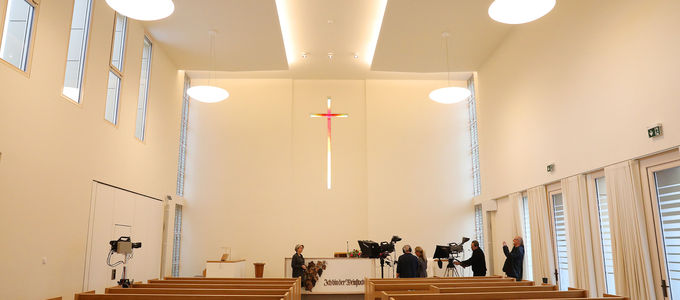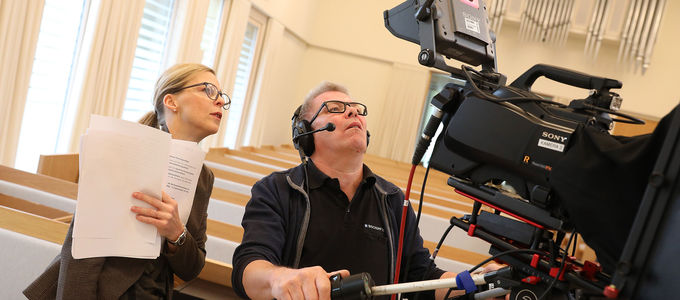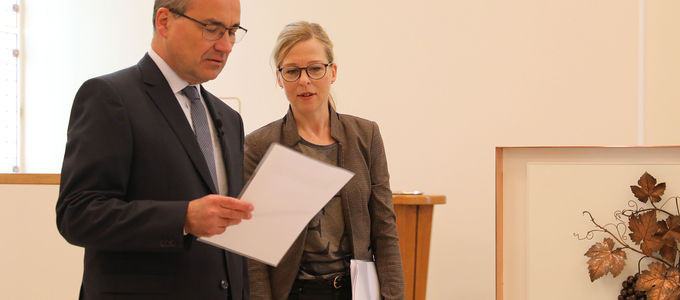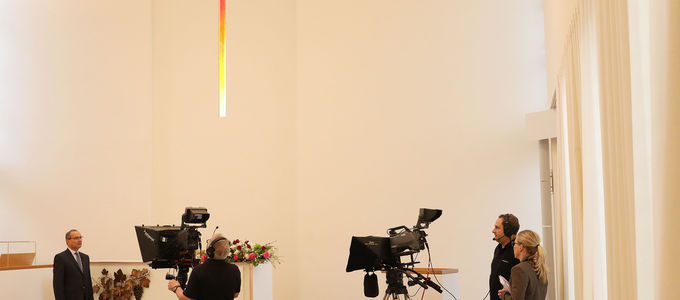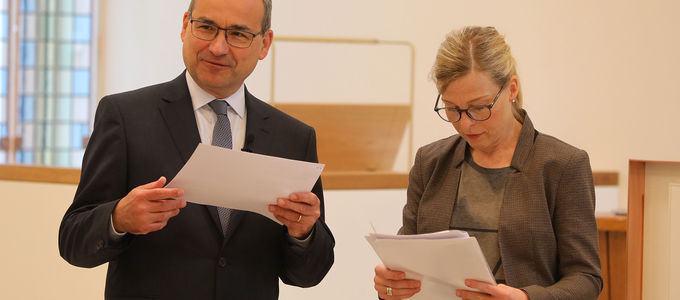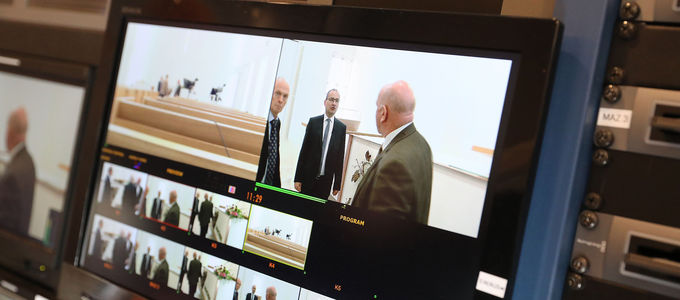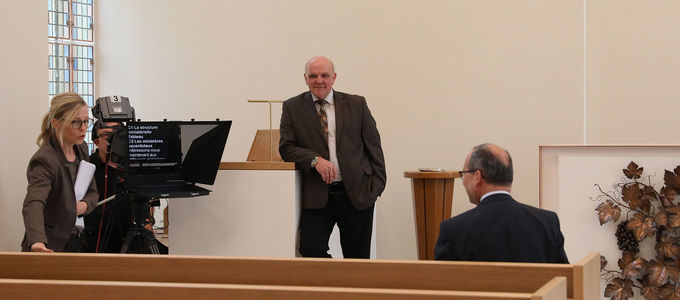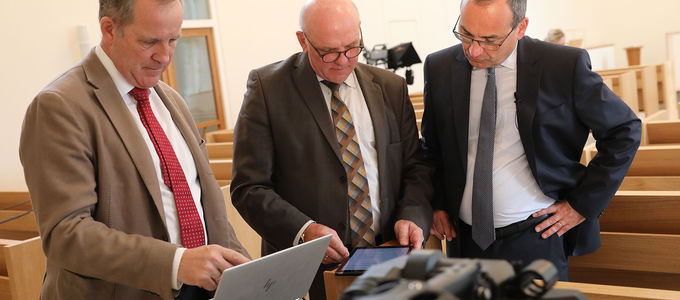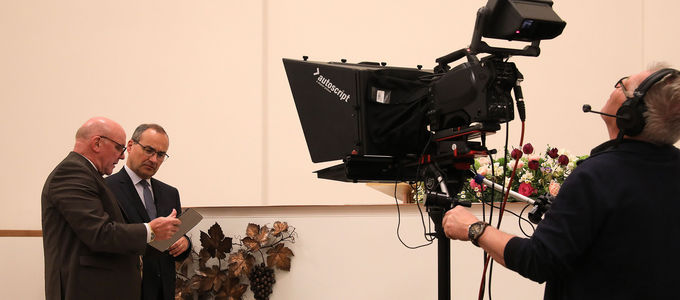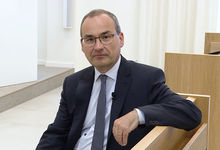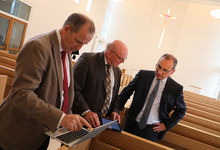Our concept of ministry met with a big response
Everybody is talking about it: our new definition of ministry. And most of the reactions are positive, although there is some criticism. Here is a look at the general trend.
Chief Apostle Jean-Luc Schneider is currently addressing the Church members across the globe in a video address. South Africa and Europe started this past Tuesday. Australia and Argentina followed suit. Subject of the presentation are the upcoming regulations concerning the decoupling of ministerial authority and leading function.
The fact that the Chief Apostle himself presented, explained, and justified the reform meets with approval—both offline in the congregations and online in the social networks. “That’s what I call transparency,” a young woman from Namibia writes on Facebook, for example.
Overwhelming approval for the new ministerial structure
Starting Pentecost 2019, the ministries from Evangelist to Bishop will no longer be ordained. This is the biggest part of the reform announced in the video message, and it struck a significant chord with the people. Mostly positive, Church spokesman Peter Johanning says. He estimates the approval to be at 80 to 90 per cent.
And it really does sound positive in the social networks: “The Church is moving and daring to make changes. Congratulations,” a Swiss wrote. “A bold step in the right direction. We can be proud of the Apostles’ willingness to reform,” an Austrian comments. “I see the wisdom in these great amazing changes,” an Australian woman says.
But there is criticism—and from two directions.
Understanding for concerns
Not enough, too late, too cautious—is how those evaluate the reform who had been hoping for something else. Too much, too fast, too controversial are the comments from those members who fear that the Church is losing its profile. “I think it’s a combination of many small things,” a woman from Germany criticises—like many others—and mentions the hymnal reform there a few years ago.
“It is very important that our Church continues to develop and does not stand still,” another woman from Germany counters such fears. “We are moving forward, we are not adapting ourselves, but are going our own way,” a man from the Netherlands says. “Makes a lot of sense in this hectic world,” an elderly brother from Canada writes and adds, “The gospel remains unchanged!” A young woman from Zambia shows understanding: “People generally have difficulty to accept changes, but if you watch the video carefully, you will see that the Chief Apostle clearly answered most of the questions that were cursing around.”
The Church answers open questions
Depending on the cultural background, there are differing opinions on the topic of the ordination of women. The Chief Apostle had said that the District Apostles and Apostles will soon occupy themselves with this question. This subject has never really been discussed within the New Apostolic Church. He said that they will take all the time needed to sound out the depths of this subject. Evaluated will be the various biblical statements, some of which contradict each other, as well as the sociological and cultural aspects.
Statements such as, “I haven’t understood this yet,” can be heard or read fairly frequently. There are still many questions that need to be answered—mostly as to how and why. But the Church and its communication channels are well prepared. Over the next few days, a special edition of the Divine Service Guide will be published, which will be reflected in upcoming issues of community. And nac.today will begin with a series on the subject.
Meanwhile, training courses have been slated for the ministers. First of all, though, the presenters will receive extensive training. The likely first course of this kind will take place this Saturday in the District Church Western Germany. The active ministers are to be trained and set to go by Pentecost. Further seminars will follow for retired ministers and all interested members.
Article info
Author:
Date:
Keywords:
Andreas Rother
12.04.2019
continents,
Doctrinal statements,
Doctrinal instruction


